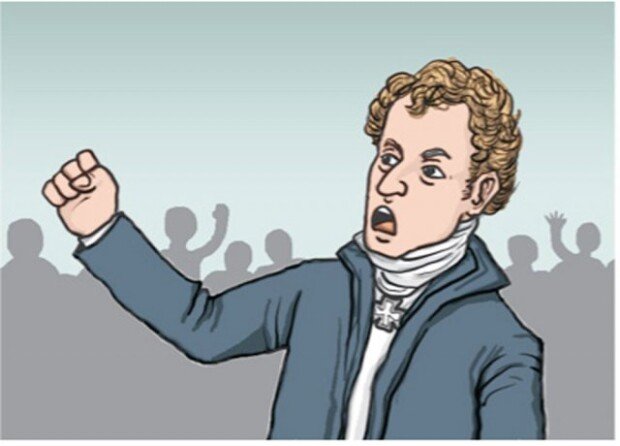Philosopher Fichte’s love for Germany
Philosopher Fichte’s love for Germany
Posted July. 13, 2021 09:18,
Updated July. 13, 2021 09:18

Germany suffered a humiliating defeat by Napoleon in 1807. Napoleon seized Berlin by advancing faster than the retreating German forces. Even more insulting to the Germans, Napoleon flaunted himself as the military successor of Frederick the Great.
A philosopher in his late 40s gave passionate lectures at the auditorium of the Berlin Academy under French occupation every Sunday evening for 13 weeks from December in 1807. He analyzed the causes of Germany’s defeat but did not try to make people feel better by finding a scapegoat. Napoleon did not even attempt to spread the message of hope. In the worst circumstances, he proudly proclaimed that Germans are the people who are capable of leading the world and setting an example for the world.
He is philosopher Johann Gottleib Fichte and a collection of his lectures is titled, “To all the Germans.” At that time, Germany was still a union of principalities, including Prussia, Saxony, and Bavaria. A shocking defeat could have found a scapegoat and pushed the country into a deeper division. Fichte sensed that risk and declared that all evils are of foreign origin. “Germans are the greatest people in the world. This strength has been tainted by foreign languages and cultures. If it eradicates those evils, restores the original character of the German people, and achieves national unity, Germany will be reborn as a great nation.”
His argument was convincing because he persuaded people that creative and passionate talent is needed to lead the future, and education that nurtures such talent will determine the future of Germany. But it became a double-edge sword for Germany as it was mixed with excessive nationalism.
Fichte’s writings are a mix of truth, propaganda, insight, and sophistry. Intellectuals of later generations ought to understand the circumstances of the times. At the same time, they should also have the responsibility to separate ends from means. Is our society living up to that obligation or hiding behind the curtain of the “age” and busy rationalizing itself? If a drop of poison is added to a cup of tonic, that tonic is poisonous.
Headline News
- Med professors announce intention to leave hospitals starting Thursday
- Bridge honoring Sgt. Moon Jae-sik unveiled in Pennsylvania
- Chief of Staff Chung tells presidential secretaries to stay away from politics
- US FTC bans noncompete agreements
- N. Korea launches cyberattacks on S. Korea's defense companies







